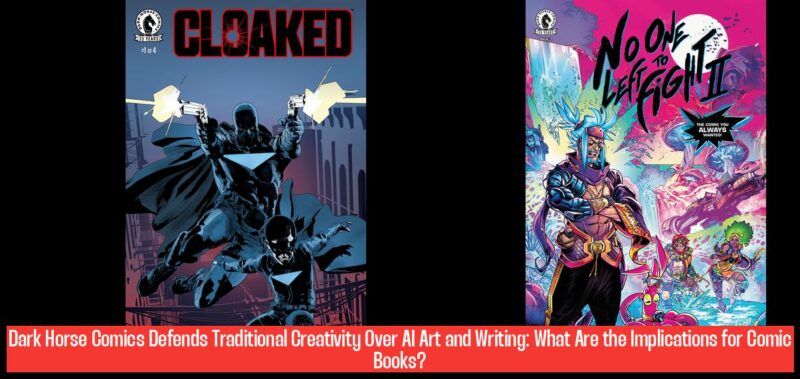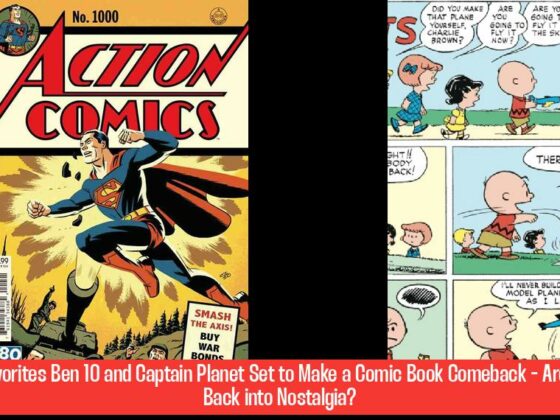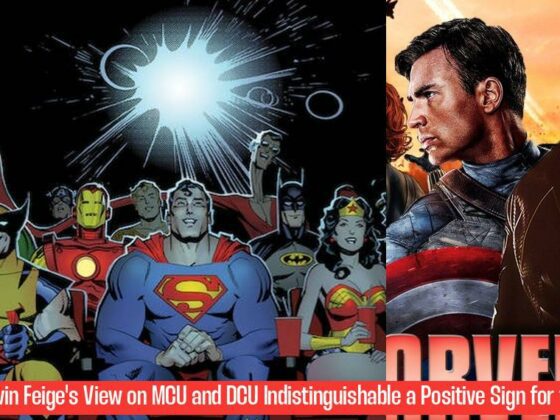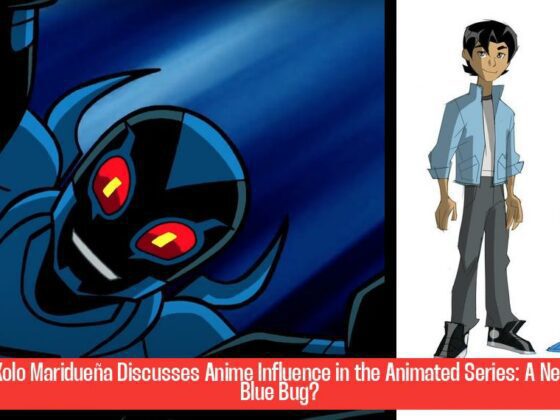Dark Horse Comics Takes a Stand Against AI Art and Writing
In a bold move that reverberated across the comic book industry, Dark Horse Comics, the renowned independent publisher behind iconic titles like Hellboy and The Umbrella Academy, has publicly declared its opposition to the use of Artificial Intelligence (AI) in creating artwork and writing for its comics. This stance, announced through a concise statement on X (formerly Twitter), has sparked discussions about the ethical and creative implications of AI in the realm of storytelling.
Dark Horse Comics’ decision is rooted in its commitment to fostering a creative environment that values human ingenuity and craftsmanship. The company believes that AI-generated content lacks the authenticity and depth that readers associate with the meticulously crafted narratives and art that have become synonymous with the Dark Horse brand. By drawing a firm line against AI art and writing, Dark Horse seeks to preserve the integrity of its publications and protect the livelihoods of artists and writers who contribute to its success.
This stance reflects a broader debate within the creative industries, where concerns about the potential displacement of human artists and writers by AI tools have grown increasingly prominent. While some argue that AI can be a powerful tool for enhancing creativity and streamlining production processes, others fear that its widespread adoption could lead to a homogenization of creative expression and a devaluation of human artistic talent.
Dark Horse’s decision to stand against AI art and writing highlights the company’s dedication to its core values – originality, creativity, and the celebration of human talent. This move sends a clear message to its readers, creators, and the broader comic book community about its commitment to preserving the unique and irreplaceable contributions of human artists and writers.
The company’s stance has been met with a mix of support and skepticism. Some creators and fans applaud Dark Horse for taking a stand against what they see as a threat to the integrity of the comic book medium. Others, however, are more cautious, questioning whether AI can truly replicate the depth and nuance of human creativity.
Examining the Arguments: AI in Comic Books
The debate surrounding AI in comic books revolves around a complex interplay of ethical, creative, and economic considerations. Proponents of AI argue that it can be a valuable tool for artists and writers, offering new possibilities for creative expression and streamlining production processes. They point to the potential of AI to generate unique and innovative ideas, automate repetitive tasks, and even help creators overcome creative blocks.
However, critics of AI in comic books raise concerns about the potential for AI-generated content to replace human artists and writers, leading to job displacement and a homogenization of creative expression. They argue that AI-generated art and writing often lack the depth, nuance, and emotional resonance that are hallmarks of human creativity. They also point to the potential for AI-generated content to be used for unethical purposes, such as creating deepfakes or spreading misinformation.
The debate is further complicated by the fact that AI technology is constantly evolving, with new tools and capabilities emerging all the time. As AI becomes more sophisticated and accessible, the lines between human and AI-generated content are likely to become increasingly blurred. This raises important questions about how to define and protect human creativity in an era of rapid technological advancement.
The use of AI in comic books is still in its early stages, and it remains to be seen how it will ultimately shape the industry. However, the debate surrounding AI is likely to continue as the technology continues to evolve and its potential impact on creative industries becomes increasingly apparent.
Dark Horse’s Legacy: A Champion of Independent Comics
Dark Horse Comics, founded in 1986 by Mike Richardson, has carved a unique niche in the comic book industry as a champion of independent creators and innovative storytelling. The company’s success has been built on its willingness to take risks, embrace new ideas, and nurture the talents of up-and-coming artists and writers.
Dark Horse has published a diverse range of comics, from critically acclaimed original works like Sin City and The Goon to licensed comics based on popular franchises like Star Wars, Avatar: The Last Airbender, and Buffy the Vampire Slayer. The company has also been a pioneer in the development of digital comics, with its digital platform offering readers a wide selection of titles in various formats.
Dark Horse’s commitment to independent creators has been a defining characteristic of the company’s identity. By providing a platform for diverse voices and fostering a culture of innovation, Dark Horse has helped to shape the landscape of the comic book industry and inspire generations of creators.
The company’s decision to take a stand against AI art and writing is a testament to its commitment to the human element of storytelling. By rejecting AI-generated content, Dark Horse is sending a clear message about its commitment to the authenticity, originality, and craftsmanship that define its legacy as a leader in the world of independent comics.
The Future of Comic Book Creation
The debate surrounding AI in comic books is just one aspect of a broader conversation about the future of creative industries in an era of rapid technological advancement. As AI technology continues to evolve and become more sophisticated, it’s likely to have a profound impact on the way we create and consume art in all its forms.
The question of whether AI can truly replicate the depth, nuance, and emotional resonance of human creativity remains open to debate. However, it’s clear that AI is poised to play an increasingly important role in the creative industries, and it’s up to us to ensure that its development and use are guided by ethical principles and a commitment to preserving the unique value of human creativity.
The future of comic book creation is likely to be shaped by a dynamic interplay of human and AI-driven forces. As new technologies emerge and creative approaches evolve, the comic book industry will continue to evolve, adapting to the changing landscape of storytelling and embracing the potential of new tools while preserving the core values that have defined its history.
The debate surrounding AI in comic books is a complex one, with no easy answers. However, it’s a debate that we must engage in, for it will ultimately shape the future of storytelling and the role of human creativity in the digital age. As we navigate this uncharted territory, it’s important to remember that the power of storytelling lies not in the tools we use but in the human hearts and minds that bring stories to life.
What stance has Dark Horse Comics taken regarding AI art and writing?
Dark Horse Comics has publicly declared its opposition to the use of Artificial Intelligence (AI) in creating artwork and writing for its comics.
What is the reason behind Dark Horse Comics’ decision to oppose AI-generated content?
The company believes that AI-generated content lacks the authenticity and depth that readers associate with the meticulously crafted narratives and art that have become synonymous with the Dark Horse brand.
What values does Dark Horse Comics aim to uphold by standing against AI art and writing?
Dark Horse seeks to preserve the integrity of its publications and protect the livelihoods of artists and writers who contribute to its success, reflecting its dedication to originality, creativity, and the celebration of human talent.
How has Dark Horse Comics’ stance against AI art and writing been received by the comic book community?
The company’s decision has been met with a mix of support and skepticism, with some applauding the move as a defense of the medium’s integrity, while others question AI’s ability to replicate human creativity.



